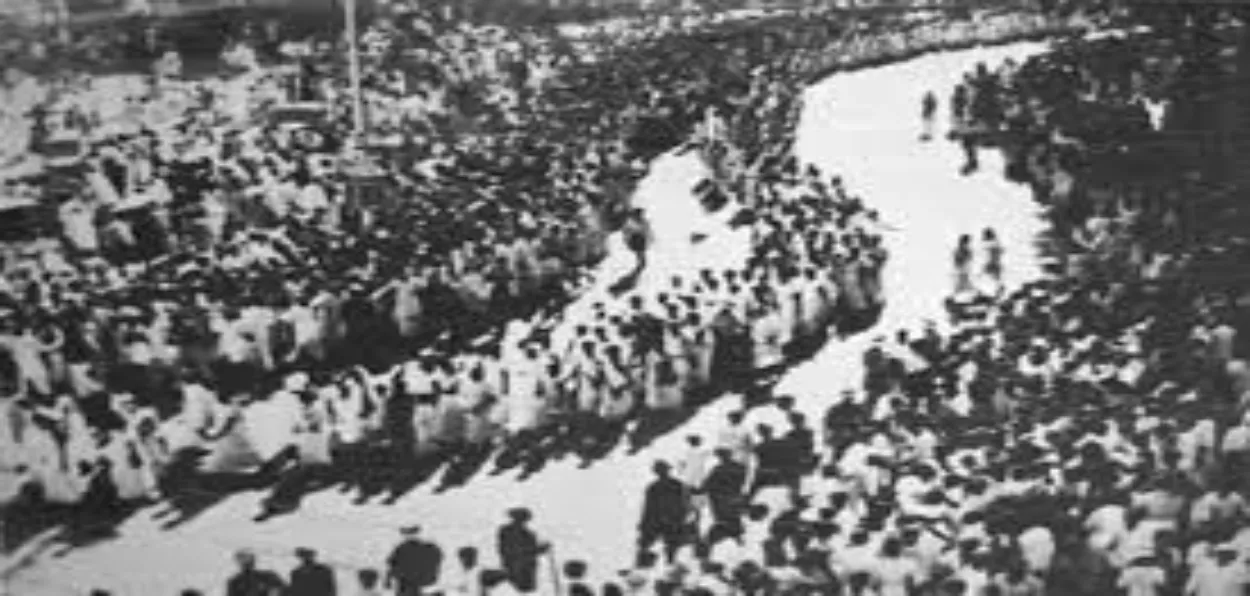
Saquib Salim
“I appeal to the Jamiat-ul-Ulema, the old representative organisation of the Ulemas or the Muslim divines of India led by that distinguished patriot and leader Mufti Kifayat Ullah….. if all these organisations join in this struggle the day of India’s liberation will be drawn nearer.” Subhas Chandra Bose said this in his radio broadcast from Germany on 31 August 1942.
Unsung Heroes of Freedom Struggle
Mufti Kifayat Ullah, born in Shahjahanpur, was one of the founders and the first head of Jamiat-i-Ulema, a body of Muslim scholars founded in 1919. Abdul Rashid Rashid in his biography of Kifayat Ullah writes, “Mufti Kifâyatullâh remained the temporary head of Jamiatul-Ulama throughout the life of his teacher, Hadrat Shaykh-ul-Hind, due to the latter’s imprisonment in Malta. Throughout his life, he never accepted to be the permanent head of the Jamiat. Although he held this position from 1919 till 1938 – 19 continuous years – he never took charge as chair of the Jamiat’s annual conferences but would leave the position to his contemporaries.”
Jamiat was more of a political organisation that worked closely with Congress, Indian revolutionaries, and Subhas Chandra Bose to free India. The British government also understood its political activities. In 1933 a British intelligence officer wrote to his seniors, “I do not consider Jamiat-e-Ulema to be a purely religious organisation. It is at least Politico-religious if not Political.”
Bose did not mention Kifayat Ullah out of the blue. He was working closely with Bose and was dealing with Axis powers during the World War like him.
It was reported in 1938 that Kifayat Ullah returned from Cairo, after attending a conference on the Palestinian issue, in a German cargo-boat. This was quite unusual because Germany at that time was an archenemy of the British. A couple of years later it would help Bose in launching an armed struggle against the imperial rule in India.
Kifayat Ullah met Bose after his return to India. Raghunandan Saran, in a letter to Jawaharlal Nehru, wrote on 14 October 1939, “Perhaps it may interest you to know that Subhas Babu met Mufti Kifayat Ullah and other Jamiat-Ul-Ulema leaders. He wanted an assurance from them to the effect that they would support the Forward Bloc. He unmistakably indicated that irrespective of what the Congress may decide hereafter, they mean to give a fight to the Government. They will not be a party to any compromise with the British Government.”
Kifayat Ullah was one of the original signatories to fatwa which called for Non-Cooperation with the government. The fatwa asked Muslims not to join services including the army under the British government. Years later, Nehru said in 1953 that he was one of the first who enthusiastically welcomed the idea of Non-Cooperation forwarded by Mahatma Gandhi in 1920.
The British government imprisoned him twice for waging a war against their imperialism. Rashid writes, “he was subsequently imprisoned twice, in 1930 and 1932, on account of his outspoken speeches and involvement in civil disobedience and rallies through the Jamiatul-Ulamâ. The first time, he was imprisoned for a few days in Delhi, then moved to Gujrat. Other fellow prisoners here were Dr. Mukhtâr Ahmad Ansâri, ‘Abdul-Ghaffar Khân, Maulânâ Ahmad Sa’eed Dehlvi, Maulânâ Habîbur-Rahmân Ludhianvi, and Mister Âsif ‘Ali, among others. The second time he was arrested, he was kept in the jail of Multan along with other such political prisoners as Maulânâ Ahmad Sa’eed Dehlvi, Maulânâ Habîbur-Rahmân Dehlvi, Maulânâ Sayyid ‘Atâ-ullâh Shah Bukhâri, Maulânâ Dâwûd Ghaznavi, Laladesh Bandhoo Gupta Chowdry, and Dr. Ansâri.”
In fact, he was imprisoned less than other freedom fighters because the British feared a violent reaction from his supporters. Hafeez ur Rahman Wasif later in 1953 recalled that when Kifayat Ullah was first imprisoned in 1930, the government had to call a reserve police force to Delhi. Paharganj and other areas with Muslim populations had a heavy deployment of machine guns and rifle-carrying soldiers. The markets were almost under curfew before police reached his home to arrest him.
Led by Kifayat Ullah, Jamiat-i-Ulema was one of the first prominent organisations in India to openly come out against the British war efforts. In September 1939, the British Government notified that all literature and propaganda material of the meeting of Jamiat should be proscribed. The British have asked Indians to support their war against Germany. While the Congress was still discussing the issue, Jamiat came out with a statement asking people to oppose the British. This was exactly in line with what Netaji Subhas, Maulana Ubaidullah, and Rash Behari Bose were preaching.
ALSO READ: Bakhshish Ali led the revolt of 1857 in Jhansi
Moreover, under his leadership, Jamiat led a front against Mohammad Ali Jinnah and the Muslim League’s demand of Pakistan to keep India united.
